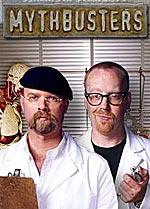 "What kind of person would shoot at a rescue helicopter?"
"What kind of person would shoot at a rescue helicopter?"Like many folks I've heard that question repeatedly from people who want to shift the responsibility for the failed response in the aftermath of Hurricane Katrina on to the victims of the disaster.
After sorting through the official reports, Knight Ridder has the answer: nobody. It never happened.
On Sept. 1, as patients sweltered in hospitals without power and thousands of people remained stranded on rooftops and in attics, crucial rescue efforts were delayed as word of [helicopter] attacks spread. But more than a month later, representatives from the Air Force, Coast Guard, Department of Homeland Security and Louisiana Air National Guard say they have yet to confirm a single incident of gunfire at helicopters. Likewise, members of several rescue crews who were told to halt operations say there is no evidence they were under fire.This comes on the heels of the reports last week that the rumors of violence and marauding bands of thugs were greatly exaggerated.
It turns out, there weren't hundreds of deaths and bands of armed thugs roaming in the Superdome. In reality there were 6 deaths at the Superdome. Of those, four died of natural causes, one overdosed and another jumped to his death in an apparent suicide. I wonder if any of them could have been saved if our response was more focused on helping people and less on a
I can appreciate the difficulty in getting accurate reports in a disaster area, but the firestorm of rumor mongering that occurred is really tragic. Unfortunately, the fact that the victims were overwhelming black and poor just added fuel to the fire and fed into misconceptions. At one point, the military was even referring to the victims as insurgents; literally making the comparison to them as the enemy.
It's a shame that the false rumors were spread in the first place, but even more tragic is the fact that most of the public will never know what really happened and will continue to believe the worst.
Sadly, too many of us are predisposed to believe the worst about
Comments